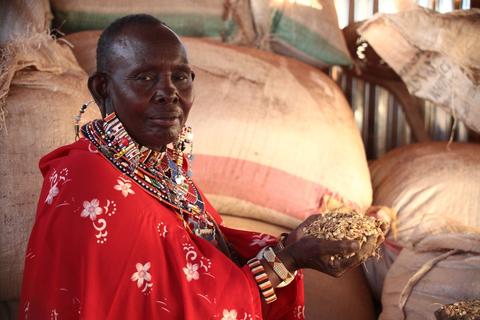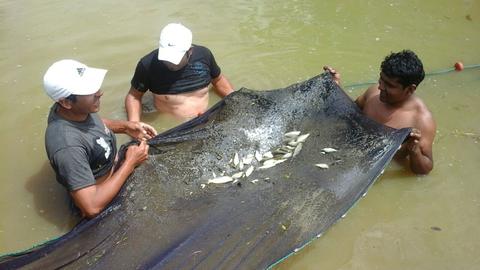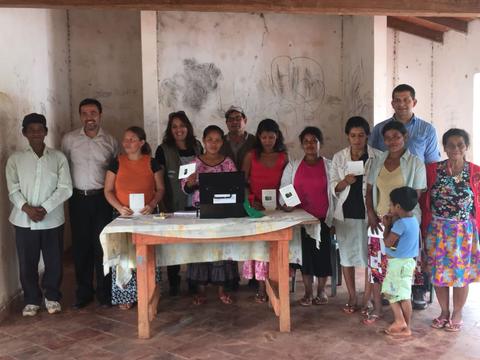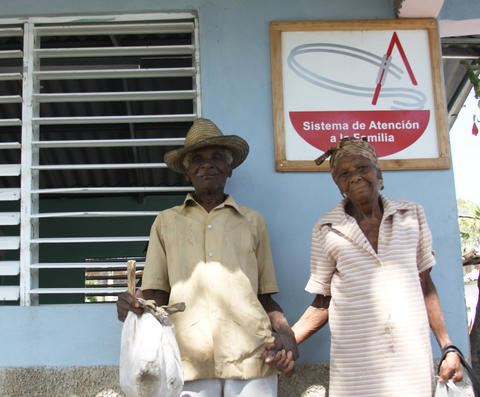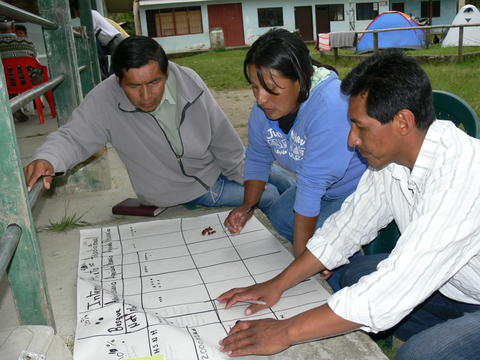May 19, 2017
Businesses renew their commitment to 2030 Agenda for Sustainable Development through the SDG Fund
Leading companies of the SDG Fund Private Sector Advisory Group start a 2-year term and celebrate milestones in fighting poverty through partnerships
Business representatives from around the world will join the United Nations Sustainable Development Goals Fund this week to commemorate their work as part of the Private Sector Advisory Group (PSAG). The group will examine how the business community can work towards the 2030 Agenda for Sustainable Development, UN’s roadmap to promote inclusive economic growth, social justice and environmental protection. The group kicked off a new 2-year term during a meeting in New York today by highlighting key achievements since its forming in 2015.
This group of businesses committed to sustainability has accomplished a number of goals since it was formed in 2015, including adding new businesses, and establishing a set of pioneering public-private partnerships in areas such as food security, education, and employment for women and youth. It has served as an important link between the business sector and SDG Fund partners, worked to raise awareness about the SDGs, participated in ground breaking research on public-private partnerships, and promoted best practices.
Advocacy and outreach
The PSAG initially played a vital role in informing the SDG Fund on how businesses could work closely with new partners at the UN, particularly how they can improve people’s living standards and make investments that will create more jobs. “By adopting the Sustainable Development Goals, global stakeholders from both the public and private sectors pledged to end poverty, promote sustainable development, and improve livelihoods,” said Paloma Duran, director of the SDG Fund. “Continued and increased investment in advocating new sectors on the 17 goals - especially the business sector - will be a significant part of delivering on that promise.”
The SDG Fund has generated key initiatives, including the Food Africa Project in Nigeria, an innovative partnership between a private company, UN and government agencies, and renowned chefs that aims to alleviate poverty through food security.
The SDG Fund has also been instrumental in issuing a series of reports, including “Business and the United Nations: How business can contribute to the SDGs,” which provides case studies and best practice advice for companies eager to engage in the SDGs. A second report, “Universality and the SDGs: A Business Perspective,” released this year, is based on input from more than 100 companies gained through workshops in Africa, Latin America, Europe and the United States. Grounded in a yearlong series of interactive discussions, the publication gives deep insight into how companies are working to address the SDGs.
Growth and Expansion
The SDG Fund, established in 2014, is committed to bringing public and private institutions together to achieve development results. Its private sector strategy has two goals: to involve businesses in all of its 22 field programs and expand the reach of its global business advisory partners.
The 12-member Private Sector Advisory Group will continue to provide a valuable perspective about how SDG Fund’s public-private partnerships can help eradicate poverty, achieve food security and improve nutrition, water access and sanitation. Since joining the PSAG, many members have incorporated the SDGs into their work and sustainability reports. For example, Nutresa and Sahara Group now report annual results and sustainability activitiesusing SDG goals and indicators. More than half of the PSAG members are engaging with the SDG Fund to create public-private partnerships and working to design and co-create programs in the field.
New members of the PSAG include Intel and Emery Oleochemicals. Emery plans to look beyond its core business of manufacturing renewable chemicals to expand its sustainability agenda by implementing an ethical supply chain, adopting best practices for responsible operations, and embedding sustainability as a regular means of doing business.
Businesses and governments are continuing to explore how the 17 SDGs can be incorporated into the work of each enterprise. The number of businesses interested in joining forces on the SDGs has been encouraging. Companies like Ebro Foods have used the power of social media to raise awareness about a new initiative that brings together philanthropists, governments and academics. This includes the Food Africa Project, which aims to improve food security and nutrition, boost investment, and open new trade pathways for small farmers.
Other milestones include the engagement of Goodwill Ambassadors - the Roca brothers. The master chef brothers have committed to bringing attention to the SDGs and using their expertise to advocate for enhanced food security and access to nutritious food. They are also providing guidance on how to improve food industry and agricultural practices to protect the environment and create jobs.
In 2017, the public and private sectors have continued exploring how their organizations can contribute to the global development agenda. This could mean everything from devising innovative partnership agreements to investing in large-scale infrastructure or improving agriculture inputs.
Building on this group’s experience, some countries have started replicating the model and creating national versions of the group. For example, Nigeria, recently launched a Private Sector Advisory Group. The private sector has come together to advise the government to share ideas across industry sectors and regions with the aim of creating a connective platform for more impactful and local-driven models and solutions to achieve the SDGs.

